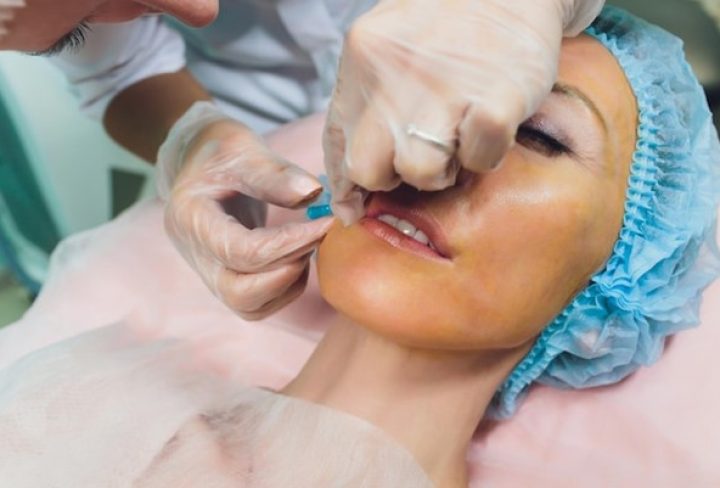A type of reconstructive surgery that is performed to repair physical deformities of the face, mouth, and jaw. Cleft lip surgery generally involves making small incisions in the lip and stitching them together. Cleft palate surgery involves removing the extra tissue and stitching the palate together. In some cases, soft tissue grafts may be taken from other parts of the body and used in the repair. Both surgeries are typically performed in an outpatient setting and may require multiple procedures to achieve the desired results. Recovery times vary for each individual, but most people can return to normal activities within a few weeks.
Why Is Cleft Lip and Cleft Palate Surgery Performed?
Cleft lip and cleft palate surgery is performed to repair physical deformities that can cause problems with speaking, eating, and breathing. It is a common birth defect and can occur as a single defect or as part of a syndrome. The goal of the surgery is to restore the normal look and function of the face, mouth, and jaw. This type of surgery is usually performed soon after birth.
Preparing for Cleft Lip and Cleft Palate Surgery
1. Schedule a pre-operative appointment: Your doctor will likely schedule a pre-operative appointment prior to the surgery, during which they will go over the procedure, what to expect, and any questions you may have.
2. Have a physical exam: Your doctor may recommend that you have a physical exam prior to the surgery, to make sure you are in good physical health.
3. Get your home ready: Make sure any necessary supplies and medications are easily accessible in your home.
4. Follow pre-operative instructions: Your doctor may give you instructions regarding medications, dietary restrictions, or other instructions. Make sure to follow these instructions closely.
5. Prepare for recovery: Have a plan for how you will take care of yourself and your child during the recovery process. Stock up on any necessary supplies, such as bandages, ointments, or medications.
6. Arrange for help: It may be helpful to have someone stay with you and your child during the recovery period.
7. Take time off work: Consider taking time off work to ensure that you are able to properly take care of your child during the recovery period.
What To Expect After Cleft Lip and Cleft Palate Surgery?
After cleft lip and cleft palate surgery, you can expect a few days of rest and recovery. During this time, your child will be monitored for any complications. They may also be given antibiotics to prevent infection. You can expect some swelling and bruising around the face, as well as some discomfort and a feeling of tightness.
Once your child has healed from the surgery, they should be able to eat, drink, and speak normally. In some cases, additional surgery may be necessary to improve feeding, speech, and appearance. Your child may need to wear a special plate or have braces fitted to help correct any problems with the teeth or jaw.
Tips After Cleft Lip and Cleft Palate Surgery
1.Follow all instructions from your doctor and surgeon. It is important to follow all instructions regarding medications, wound care, and follow-up appointments.
2. Keep the wound clean and dry. Gently clean the wound with warm water and mild soap, and pat dry with a soft cloth.
3. Avoid activities that may put too much pressure on the wound. Avoid blowing your nose, drinking through a straw, or strenuous activities that may put too much pressure on the wound.
4. Monitor the wound for signs of infection. If the wound swells or oozes pus, seek medical help immediately.
5. Eat a balanced diet to promote healing. Eat a balanced diet that is high in protein, vitamins, and minerals to promote healing and reduce the risk of infection.
6. Use prescribed pain medications as needed. If your doctor prescribed any pain medications, use them as instructed.
7. Use a humidifier to reduce dryness. Dryness can cause the wound to become irritated, so using a humidifier in your home can help reduce the risk of irritation.
8. Wear loose clothing that does not rub or irritate the wound. Wear clothes that fit loosely and do not rub against the wound.
9. Speak with your doctor about speech therapy. If your child has a cleft palate, they may need speech therapy to help them learn to speak properly.
10. Practice good oral hygiene. Regular brushing, flossing, and visits to the dentist can help ensure your child’s teeth remain healthy.
Advantages Of Cleft Lip and Cleft Palate Surgery
• Reduced Risk of Ear Infections
• Improved Appearance
• Improved Ability to Eat, Speak, and Breathe
• Improved Hearing
• Improved Oral Hygiene
• Improved Dental Health
• Improved Facial Symmetry
• Improved Self-Confidence and Self-Esteem
Cleft lip and cleft palate surgeries aim to correct congenital conditions, improving function and appearance for patients. Proper preparation and communication with the surgical team contribute to successful outcomes.

